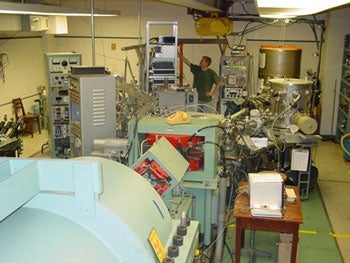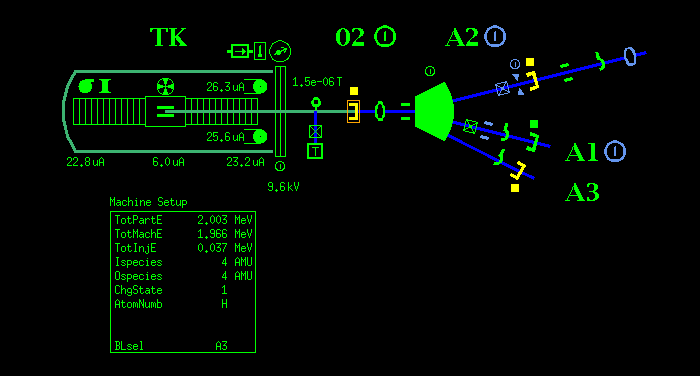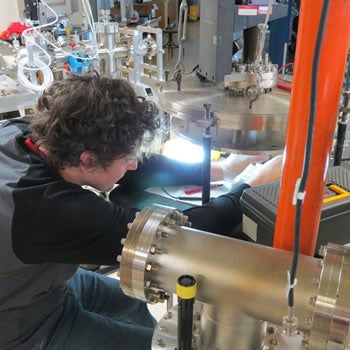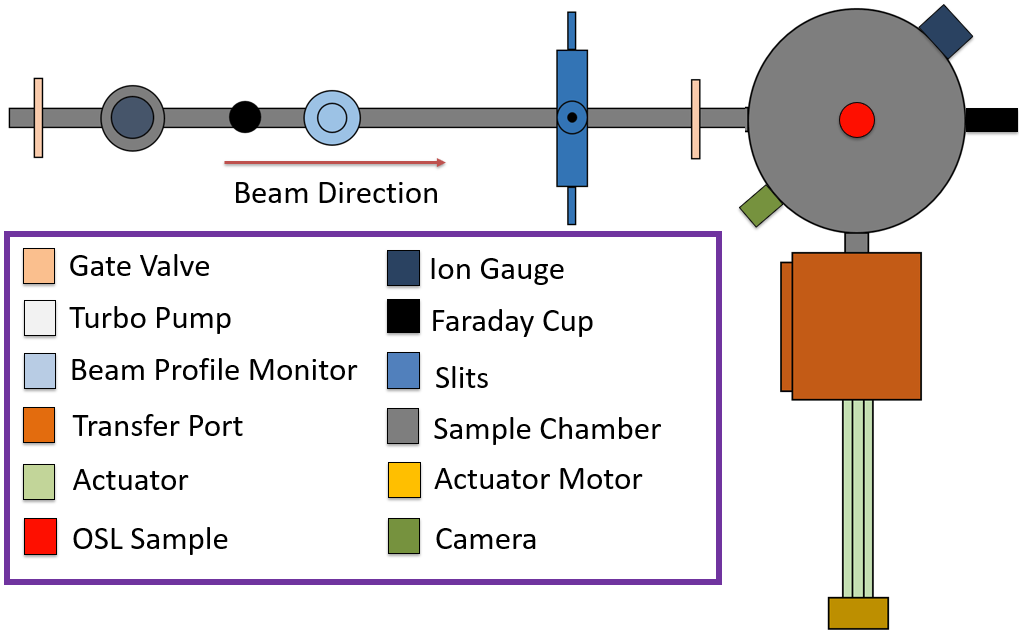Accelerator Laboratory
The Accelerator Laboratory houses a 2 MV tandem Van de Graaff accelerator with sputter ion source which is used for basic and applied research. The laboratory is the centerpiece of atomic, molecular, radiation, and optical (AMRO) research at East Carolina University. The research areas currently active are:
- Studies of ionization and excitation process in ion-atom, ion-molecule, and ion-surface interactions.
- Effects of electronic structure of “dressed” ions on ionization and charge transfer processes important to the assessment of charged particle track structure and electron transport in tissue-like material.
- Interaction cross sections studied through measurements of the energy and angular distribution of electrons ejected by the impact of fast ions and neutral particles with gas and solid targets.
- Trace elements analysis using proton induced X-ray emission analysis (PIXE) as a research component for studies in such diverse fields as anthropology, archaeology, biology, geology, and medicine.
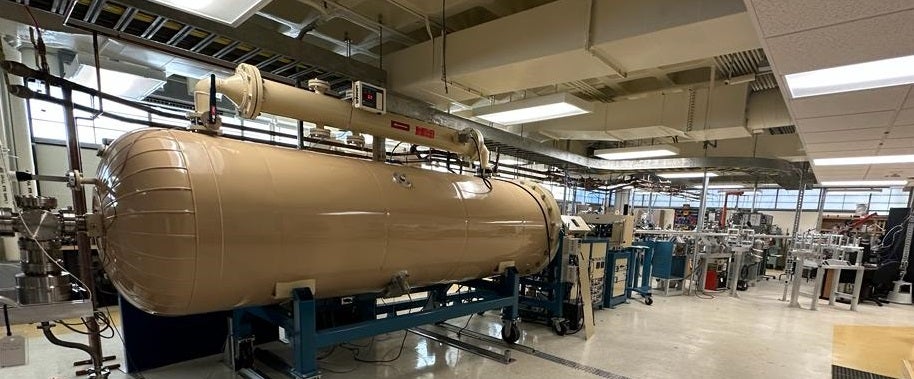
The Accelerator Laboratory is home to the university’s tandem Pelletron accelerator, and is the centerpiece of AMRO research at ECU.
The laboratory uses a wide range of specialized equipment, including various types of radiation detectors for the measurement of charged particles, VUV, X-rays, and gamma rays. NIM electronics are used for signal processing, while CAMAC is used for data acquisition, analysis, and control.
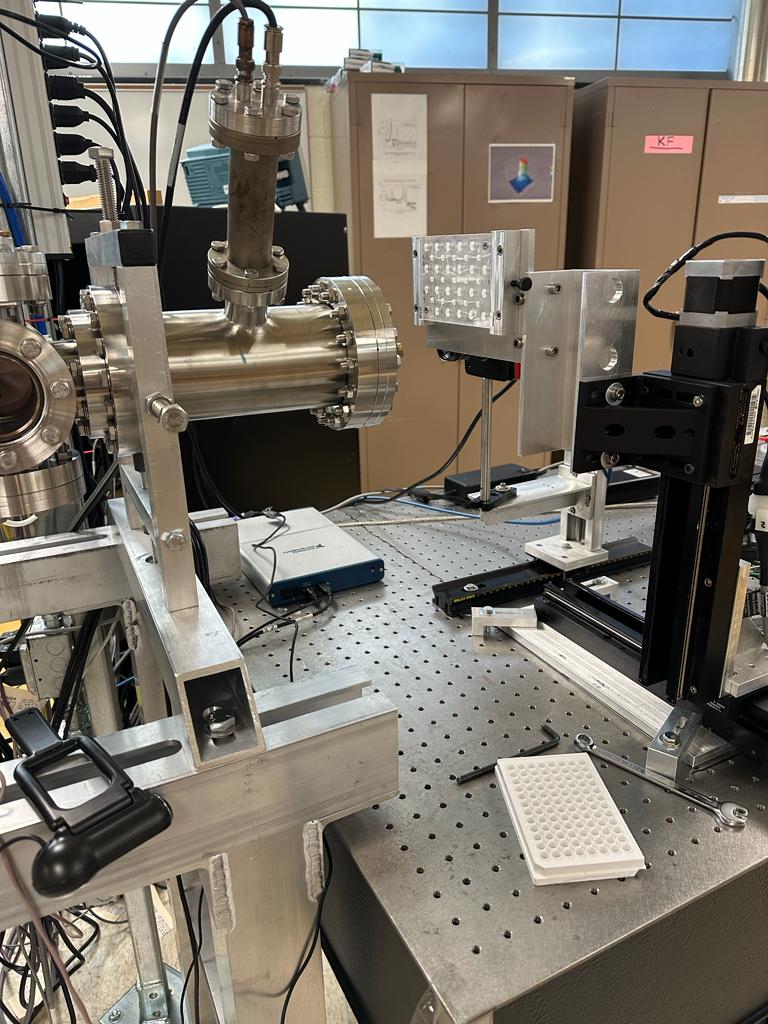
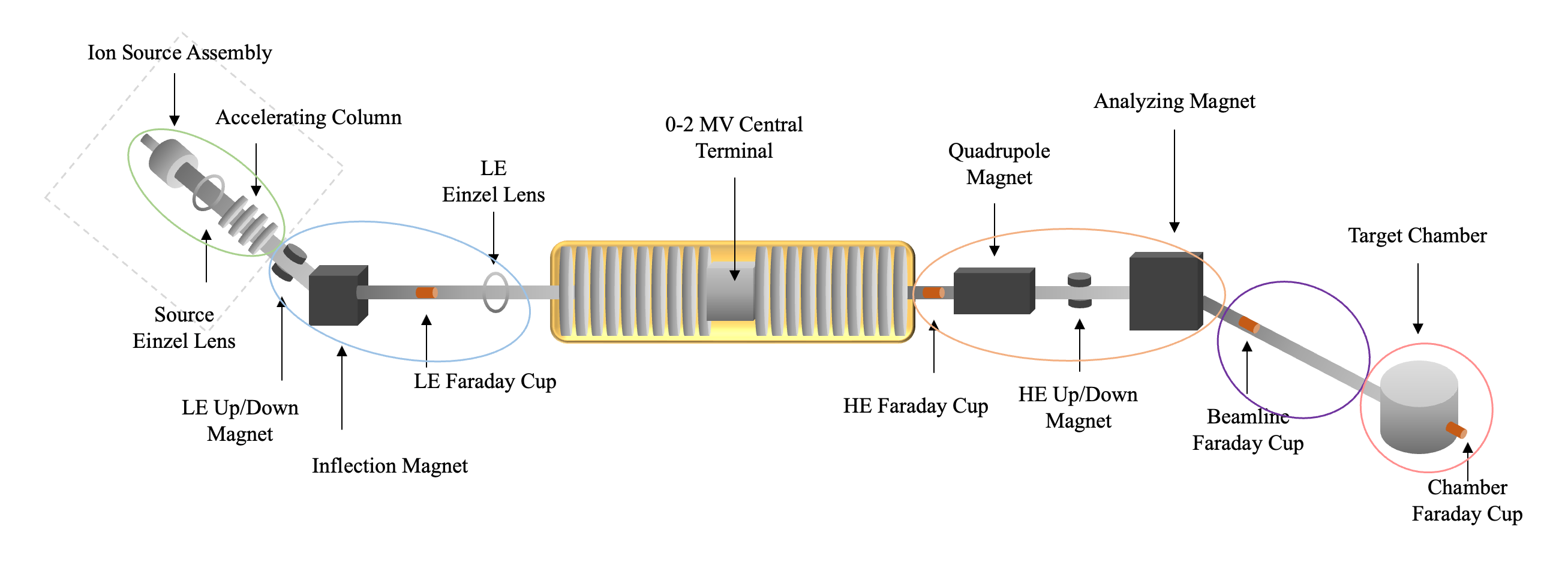
Illustration showing the ion source together with the low energy (LE), high energy (HE), and experimental beamlines.
